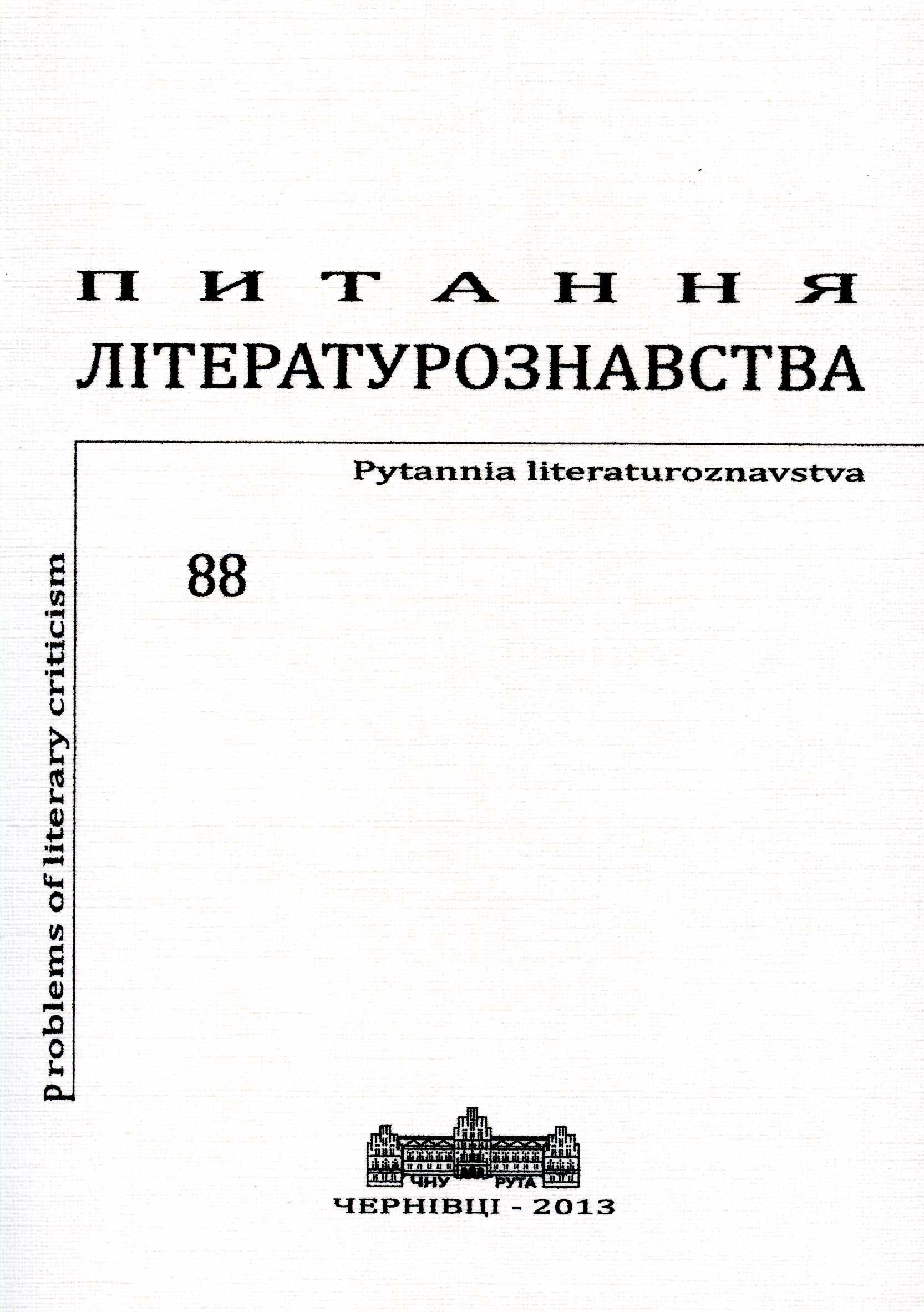Фемінна ідея в романі Сімони де Бовуар “Мандарини”
Feminine Idea in the Simone de Beauvoir’s Novel “The Mandarins”
Author(s): Svitlana KryvoruchkoSubject(s): Language and Literature Studies, French Literature, Theory of Literature
Published by: Чернівецький національний університет імені Юрія Федьковича
Keywords: S. de Beauvoir; existentialism; character; “other”; feminine idea; conflict; crisis
Summary/Abstract: S. de Beauvoir’s great contribution is the formulation in her essay “The Second Sex” (1949) of q “feminine” cultural code in the history of the civilization, to which submit the „feministic” and the “female” aspects. The purpose of the analysis is to define the feminine concept on the material of “The Second sex”,as well as to study its incarnation, existential essence of the woman's artistic character Nadine on the novel “The Mandarines”. The essence of the “feminine” code consists in opening of “other” kind of female thinking, formed by the masculine world outlook and in overcoming this “other” as a psychological inferiority complex. The feminine concept aims to discover the transcendence and to depart from the immanency. The creative search of a woman herself as a being has to go beyond the traditional scope of the functions of the mother and mistress and to proceed on to the self-realization of a personality in her creative potential. In her novel “The Mandarins” (1954) S. de Beauvoir forms the conflict between Nadine and Henry as a kind of expression of a parable stratum (“the myth” about Adam and Eve), which appears to be substational since it cannot be resolved by the characters themselves. There is only one thing that can resolve this incomprehension between Adam and Eve as well as Nadine and Henry – the course of time and the regular march of history. The character of Nadine implements the authoress’s overcoming of this notion of “other” as a psychological inferiority complex, and seeks to trace a possible future way of woman’s self-actualization as an existent aspiring to discover personal creative potential. S. de Beauvoir creates for Henry and Nadine a probability to exist in happiness, so that they have to achieve mutual understanding and harmony. Henry's action consists in becoming happy with his sweetheart. The authoress opens up the prospect of the possibility of love and happiness in marriage, which is contrary to the previous literary tradition.
Journal: Питання літературознавства
- Issue Year: 2013
- Issue No: 88
- Page Range: 392-405
- Page Count: 14
- Language: Ukrainian

